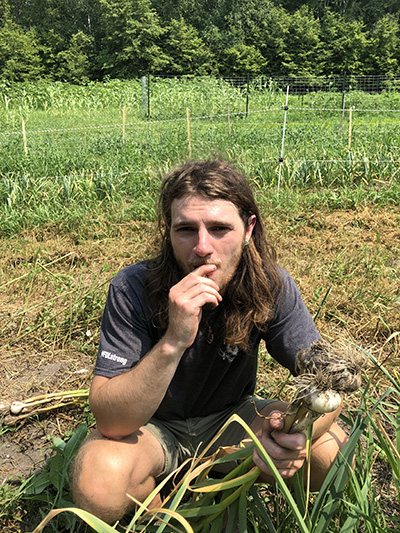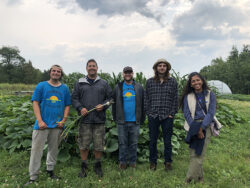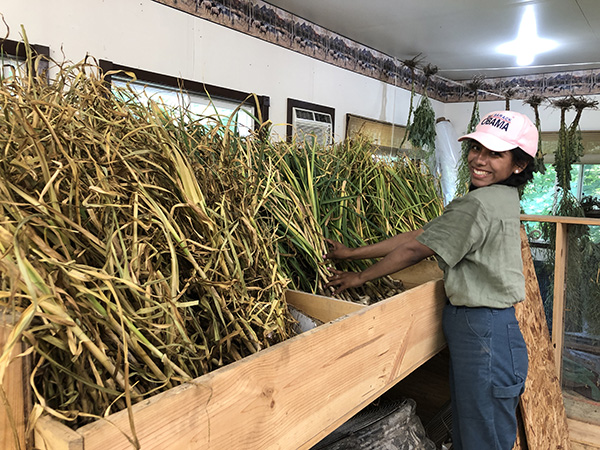Fond du Lac Tribal and Community College created the Environmental Institute concept on campus to actively promote the educational and cultural growth of the community in studies covering natural resources and the environment. Fond du Lac Tribal and Community College uses the Environmental Institute in environmental resource areas to follow all points of the College’s mission and coordinate ongoing education, research, outreach, and other activities. This emphasis allows Fond du Lac Tribal and Community College to fulfill its status as a United States Land Grant Institution by “being a people’s college and solving problems which benefit people.”
The Environmental Institute is determined to be a catalyst for positive change in our community. Visit the Environmental Institute’s YouTube channel and Facebook page for current happenings.
A variety of related land grant science projects have been successfully completed or are ongoing through Fond du Lac Tribal and Community College’s Environmental Institute. Our research projects have provided hands-on experience for students and graduates in resource-oriented fields.
To promote the education and cultural growth of the community in natural resources and the environment. The Environmental Institute supports and coordinates education, research, and outreach that serve our greater community.
The Environmental Institute is determined to be a catalyst for positive change. We are dedicated to providing education, skills, and research that help our communities connect with empowering opportunities and partnerships through culturally relevant research and programming.
Programming with the Environmental Institute at FDLTCC concentrates on:
- Sustainable Food
- Sustainable Natural Resources
- Encouraging students interest in Science, Technology, Engineering, Math and Art (STEAM)
- Connection with Ojibwe Culture
- Community Outreach
ENVIRONMENTAL INSTITUTE REPORT CARD
The Environmental Institute Report Card newsletter is available for reading and as a printable pdf, please click on the issues below.
Environmental Institute Report Card 2022
Environmental Institute Report Card October 2020
- Wild Rice Lake Restoration Research: Fond du Lac Tribal and Community College students worked with Fond du Lac Resource Management and University of Minnesota Natural Resources Research Institute scientists to collect field data to help determine best management practices to restore wild rice on regional lakes.
- Woodlands Wisdom Project: A multi-year effort focused on increasing American Indian involvement and education in human nutrition, specifically as it relates to alleviating the issues related to Type II diabetes.
- Great Lakes Northern Forest Cooperative Ecosystems Studies Unit: A collaboration designed to provide research, technical assistance, and education to federal land management, environmental and research agencies and their potential partners.
- Mercury-Dragonfly Project: This research project utilized dragonfly larvae as a sentinel species for measuring total mercury through field and lab research to correlate dry atmospheric deposition of mercury in leaf litter with bio-accumulated mercury in dragonfly larvae.
- Beaked Hazelnut Project: The bagaaniminzh (beaked hazelnut) research project utilized geographic information systems (GIS) mapping to study the ecological characteristics of healthy beaked hazelnut forests in the hopes of conserving the culturally significant resource.
- St. Louis River River Watch: The St. Louis River River Watch program was a youth-based water quality monitoring program that focused on the St. Louis River watershed and the Lake Superior Basin. This project, aimed at secondary school students, promoted and inspired stewardship of the largest U.S. tributary to Lake Superior and other nearby waterways.
- Manoomin Wild Rice Camp
- 13 Moons Pow Wow
- 8th Annual Bee Symposium
- Sugar Bush
- FDLTCC Earth Week
- FDLTCC Sustainability Week
- Gitigaan Wiikondiwag
- 13 Moons Cultural Symposium
- FDLTCC Research Symposium
For more information, contact:
Courtney Kowalczak,
Environmental Institute Director
(218) 879-0862
courtneyk@fdltcc.edu
Erika Resendiz Alonso
Agricultural Community Outreach Coordinator erika.resendizalonso@fdltcc.edu
(218) 878 – 7141
Phillip Savage
13 Moons Coordinator
phillipsavage@fdlrez.com
(218) 878-7148
Website: www.fdlrez.com/RM/13moons.htm Facebook: www.facebook.com/13-moons-ashiniswi-giizisoog-118178048248982/


